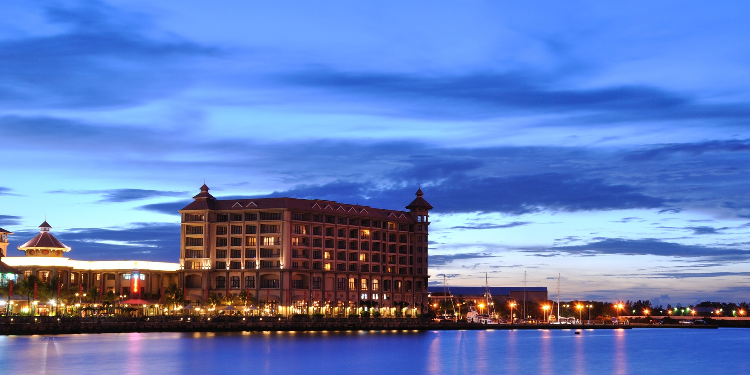
Mauritius has been on the blacklist of the European Union since June 19, 2020. A situation that remains worrying for Mauritius as an international financial centre. But as the relevant authorities are working hard to pull the country out of the blacklist, the future does not seem so bleak.
Operators in the financial sector are all holding their breath which the government is multiplying attempts at getting the destination off the blacklist. The European Union Commission's ranking is based on that of the Financial Action Task Force (FATF), an intergovernmental body that fights money laundering and terrorist financing, and that has placed the country on its gray list.
Mahen Seeruttun, Minister of Financial Services,said in an interview with the Expat Mag, that the main criticism against the Mauritian jurisdiction has to do mainly with effectiveness rather than technical compliance. “We are getting considerably better. We had to be compliant on 21 out of the 40 technical points and we abide by 36 as of today. On effectiveness, we abide by 53 of the 58 points. And we are working on the other 5 points ”.
It is noteworthy for Pierre Dinan, a well-known Mauritian economist, to point out the sectors for which the authorities have lacked vigilance, according to him, would be that of real estate, jewelry or casinos. “The financial sector in itself with the Management Companies is well regulated. But we haven't dwelled enough on those sectors that have nothing to do with Offshore. And there have been scandals regarding jewelry and gold that have not helped our case," argues the economist.
The Minister has indicated that corrective measures are being taken for these sectors in particular. “When you take real estate for example, we have companies that have been very well established and have been for years and doing things as they should, then we have the smaller real estate agents who might not be very respectful of the framework in place. The same goes for the jewelry industry. We have these large, very reputable companies and smaller traditional jewelry stores, ” says the Minister of Financial Services, adding that these small businesses are currently being targeted.
The first impact of Mauritius being on the EU's blacklist was the virtual absence of new investment, according to operators of the financial sector. Kevin Ramkaloan, CEO of Business Mauritius, an independent association of 1,200 companies, said that "members have made it clear that for the moment, the existing funds are still there but that there were very few new investments". But he remains optimistic. “I think everything is being done to go back into the green. We hope that before the end of the year we will have a financial sector that will be one of the best in the region in terms of compliance, ” he said.
Pierre Dinan mentions, however, that the situation is far from being disadvantageous for potential new investors. “It's not fair to say that nothing has been done. Rather, let's say that the FATF regulations force us to tidy up. But it must be recognized that the Mauritian jurisdiction offers advantages. For the foreigner who wants to invest in Mauritius, it is good to know that if there is a dispute, there is the possibility of going back to the House of Lords in England. Not to mention that the Supreme Court has already demonstrated its independence. For a foreign investor, that's a big advantage! ” says the economist.
Also in favor of Mauritius, according to Pierre Dinan: the country is a democracy. “We have free elections. It's true that right now we have some concerns with the protests, there have been some blunders. But there is definitely worse. We live in a democracy”, he says.
Then, the economist recalls that Mauritius enjoys a very favorable time zone, not to mention that the country is at peace. “And there is also a series of Investment Promotion and Protection Agreements. Some ratified by the government of Mauritius and other African countries, ”he said.
Minister Mahen Seeruttun reminds us that the country is "COVID-safe" and that the government has implemented the Premium Visa to encourage investors.



















